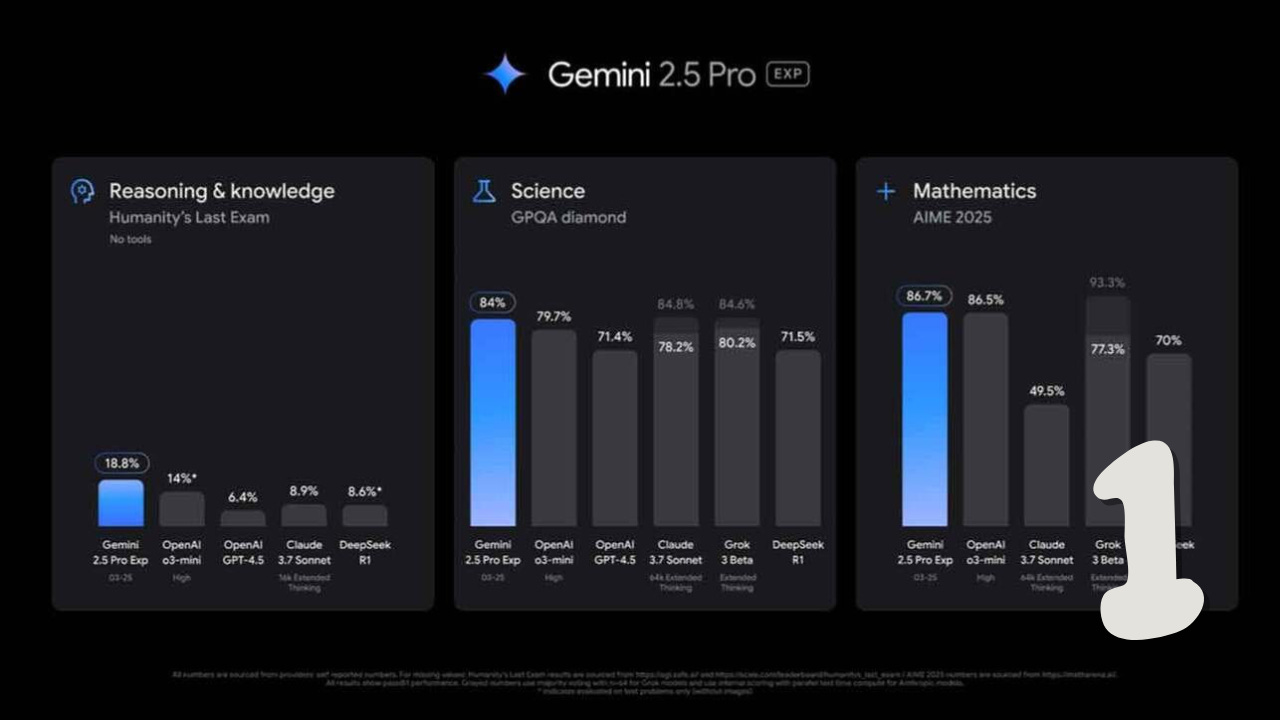🎉 Gemini 2.5 Launches, GPT-4o Image Upgrade, AI Cancer Detection, Perplexity's TikTok Bid
Google Tops the Competition Again, Image-Gen gets A Big Upgrade, AI Detects Cancer, Perplexity Wants TikTok
Welcome to this week’s edition of AImpulse, a four point summary of the most significant advancements in the world of Artificial Intelligence followed by a cool new AI tool I’m trying out this week.
Here’s the pulse on this week’s top stories:
What’s Happening: Google has unveiled Gemini 2.5, its latest AI model family with enhanced reasoning skills. The flagship, Gemini 2.5 Pro Experimental, debuts as Google's most advanced model yet, immediately securing the top spot on the LMArena leaderboard due to superior performance in mathematics, science, and coding.
Key Highlights:
Gemini 2.5 Pro tops coding benchmarks with 63.8% on SWE-Bench Verified and 68.6% on Aider Polyglot, excelling particularly in web and agent-based code.
Initially features a 1M token context window, with plans to expand to 2M tokens, suitable for extensive codebases and large datasets.
Currently accessible through Google AI Studio and the Gemini app for Advanced subscribers; API pricing will be announced shortly.
Why It Matters: Google positions "reasoning" as a core standard feature rather than a luxury add-on, emphasizing continued innovation even amid less hype compared to OpenAI. The durability of Gemini's top ranking, however, remains uncertain as rivals like GPT-5 emerge.
What’s Happening: OpenAI has introduced advanced image generation directly within its GPT-4o model and the Sora video generator. This integration merges text and image functionalities, enabling ChatGPT to create visuals with greater precision and context awareness.
Key Highlights:
GPT-4o's multimodal capabilities significantly improve accuracy in generating text-rich visuals such as menus, diagrams, and infographics.
Offers natural language image editing, ensuring consistency and effectively managing detailed prompts involving multiple objects.
GPT-4o replaces DALL-E 3 as the default image generator for all ChatGPT tiers, with Enterprise and Education tiers set to follow soon.
Why It Matters: This significant upgrade addresses previous weaknesses in OpenAI's visual generation capabilities, marking a transformative shift towards more advanced, contextually aware visual content creation.
What’s Happening: Researchers have developed ECgMLP, an AI model capable of detecting endometrial cancer from microscopic tissue images with remarkable 99.26% accuracy, vastly outperforming both human specialists and current automated diagnostics.
Key Highlights:
ECgMLP employs advanced attention mechanisms to identify subtle cancer indicators often overlooked in routine examinations.
Human diagnostic accuracy for endometrial cancer ranges between 78-81%, significantly lower than the AI's near-perfect results.
Demonstrates impressive versatility, achieving high accuracy rates for colorectal (98.57%), breast (98.20%), and oral cancers (97.34%).
Why It Matters: ECgMLP signifies a major leap in medical diagnostics, offering life-saving early detection capabilities and democratizing access to expert-level cancer screenings globally.
What’s Happening: AI search startup Perplexity has announced a bold proposal to acquire TikTok’s U.S. operations. The plan promises transparent algorithm rebuilding under American oversight, integrated with Perplexity’s own AI-powered search technology.
Key Highlights:
Proposed open-sourcing TikTok’s recommendation system, operated fully within U.S.-based data centers.
Integrates Perplexity’s citation tech, enabling real-time fact-checking within TikTok videos.
Plans to utilize Nvidia Dynamo tech to enhance scalability and dramatically boost recommendation speed.
Envisions deeper integration, combining TikTok videos within Perplexity searches and empowering TikTok’s search with Perplexity’s engine.
Why It Matters: This ambitious move represents another strategic shift for Perplexity, evolving from a simple AI search startup to a prominent player in broader tech domains. With the TikTok ban deadline approaching (April 5), the feasibility of this acquisition will soon be tested.
Cool New AI Tool: In this week’s cool new tool, learn how to convert YouTube videos into personal tutors with Google AI Studio, which lets you ask questions about any video by simply pasting the link—making complex content instantly accessible for learning.
Step-by-step:
Visit Google AI Studio and log in with your Google account.
Select "Gemini 2.0 Flash" from the Model dropdown menu on the right side of the screen.
Paste your YouTube video link in the prompt area, followed by your specific question about the content.
Ask follow-up questions to explore the video content more deeply, referencing specific timestamps if needed.
Pro tip: When exploring videos on complex educational subjects, you can ask the AI to "Create a simple explanation of the [concept]" or "Generate a quiz based on this lecture to test my understanding."






